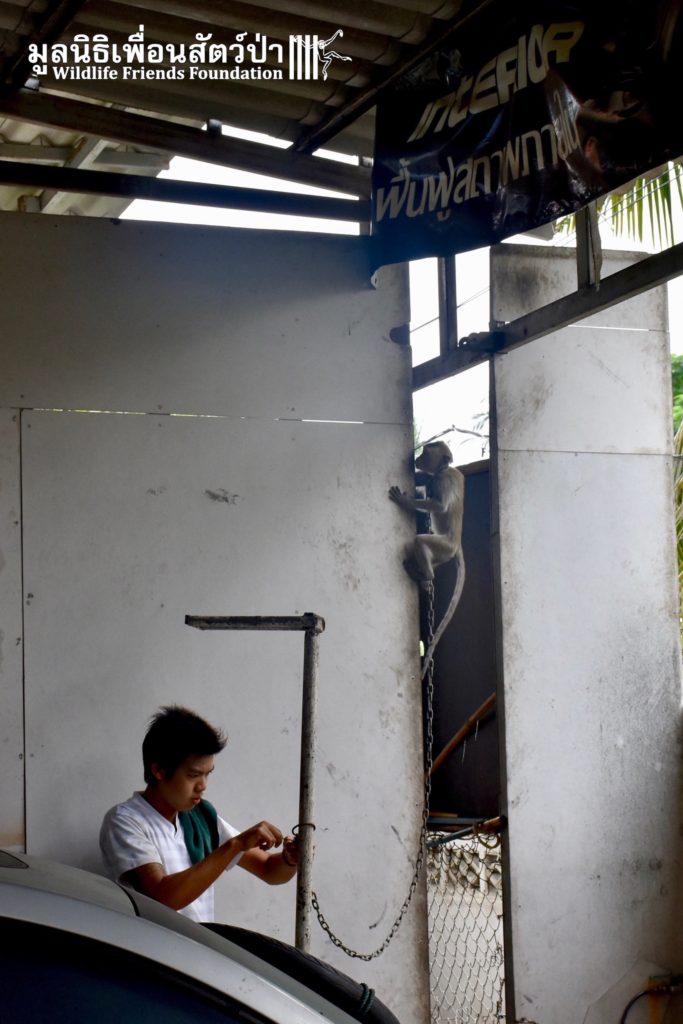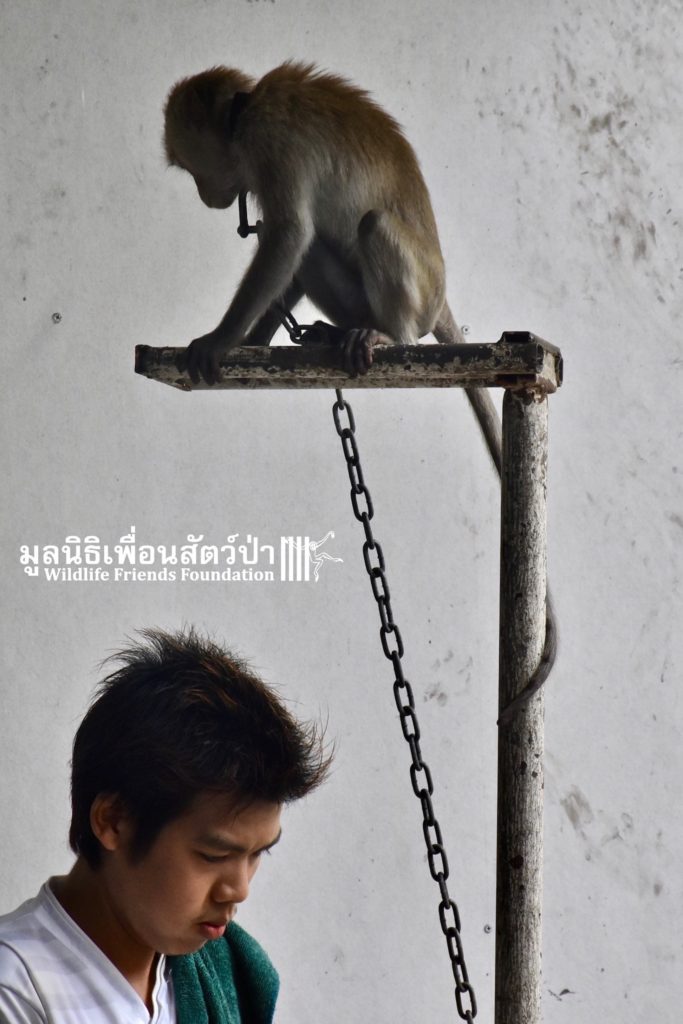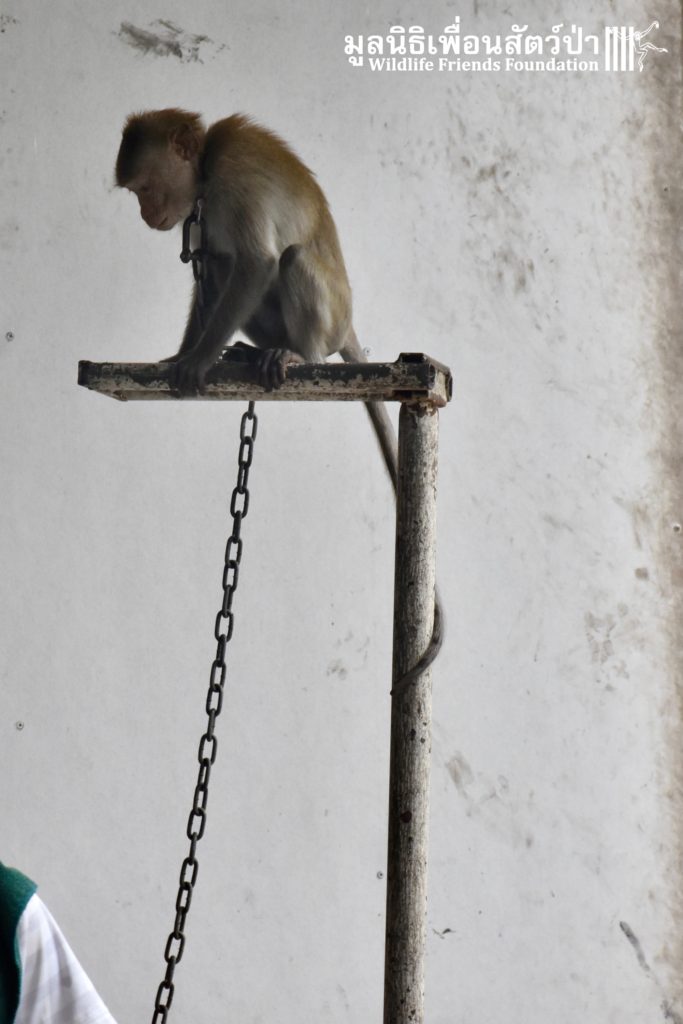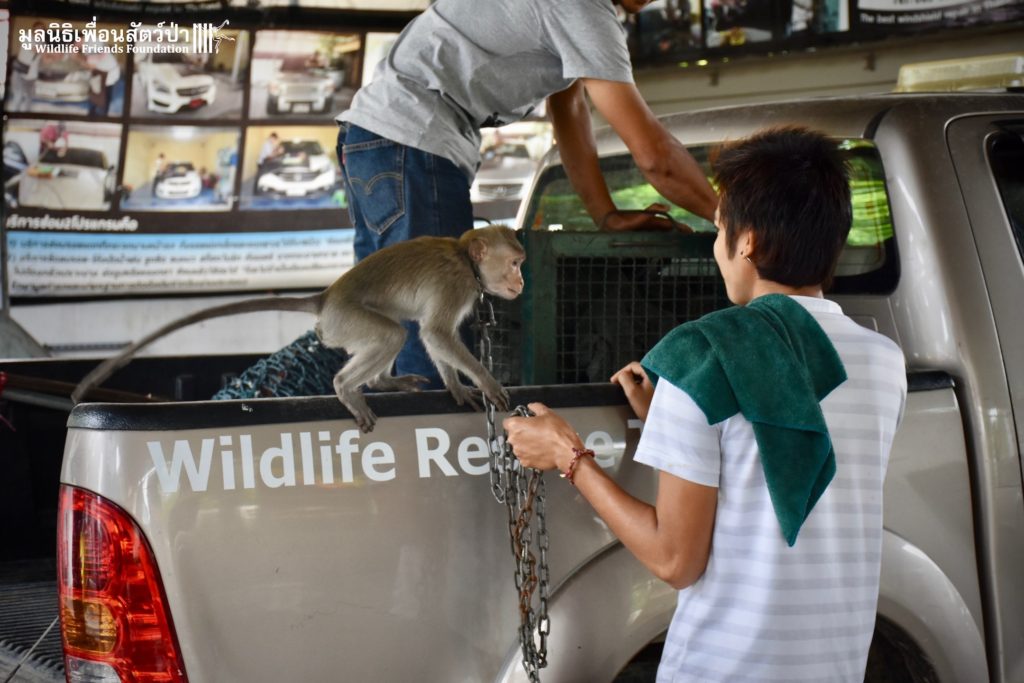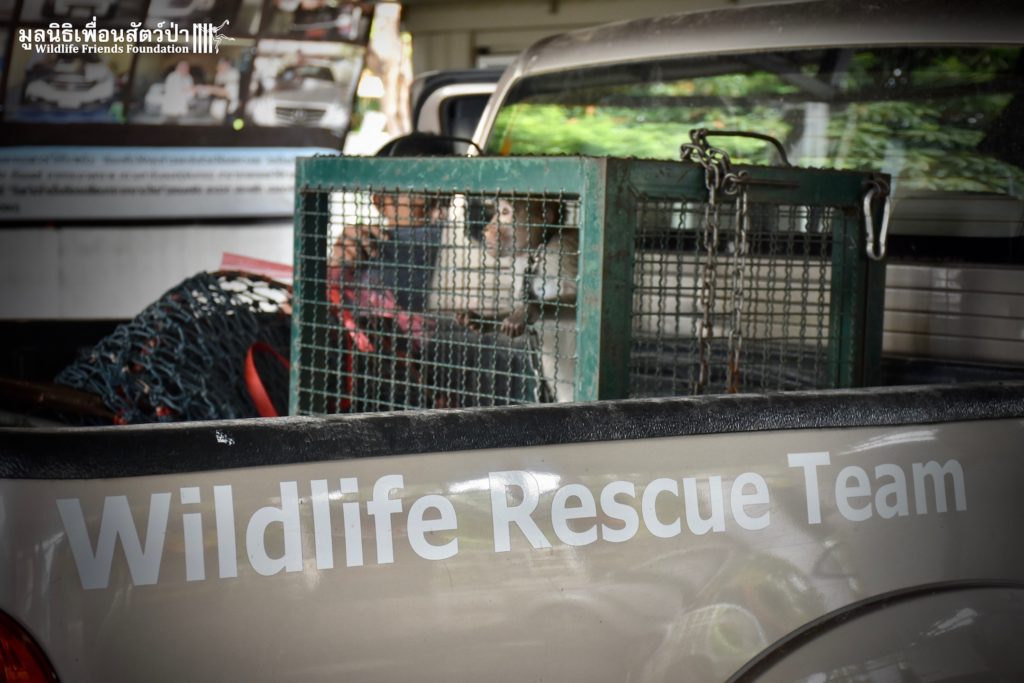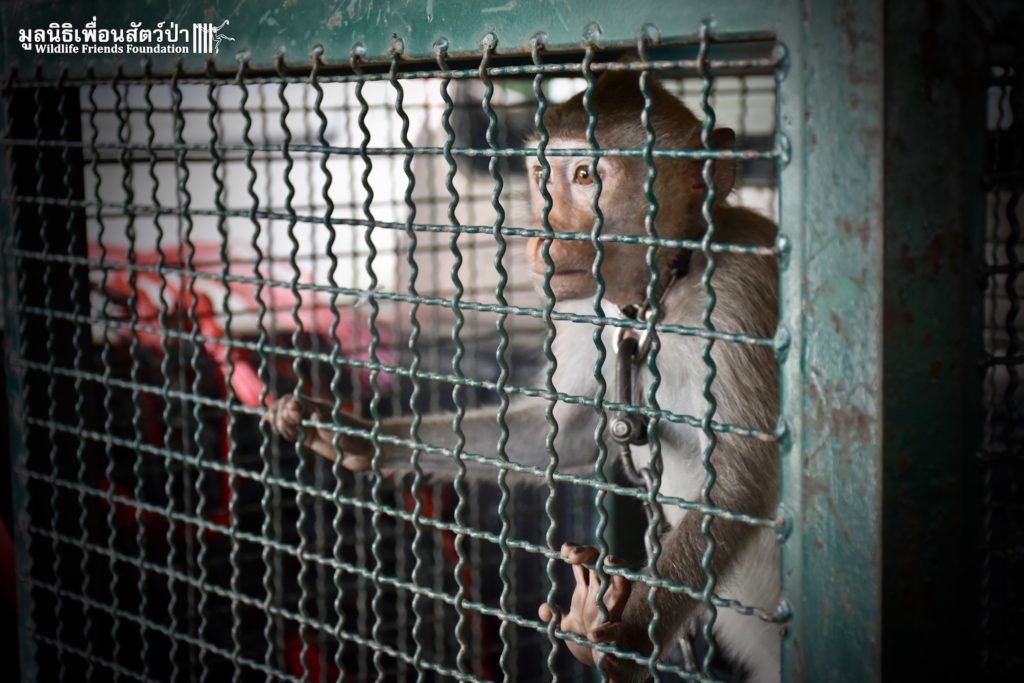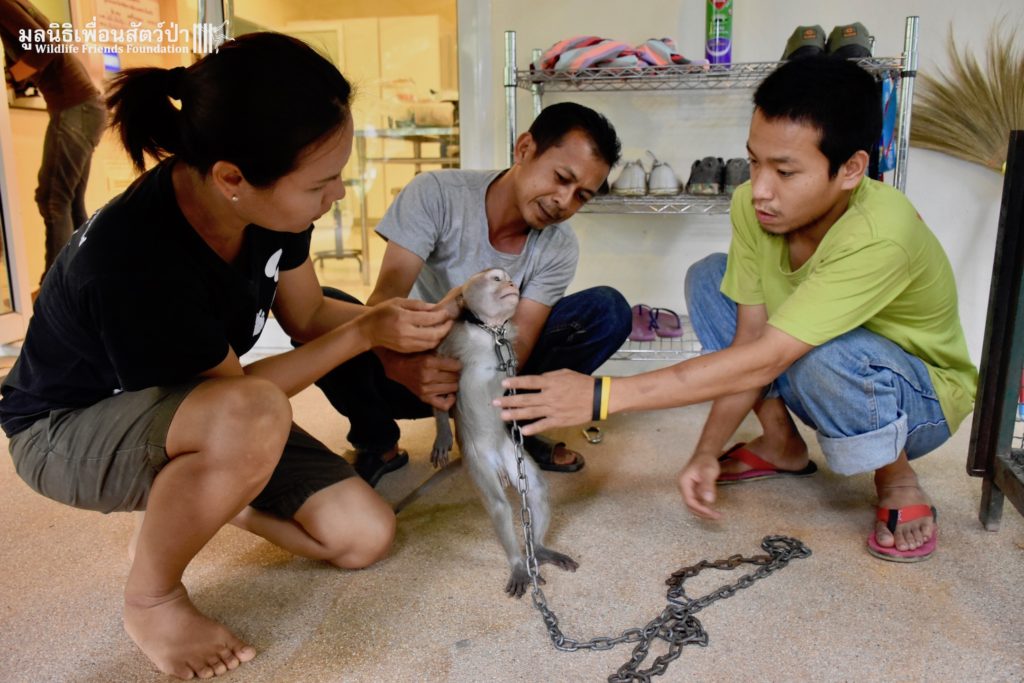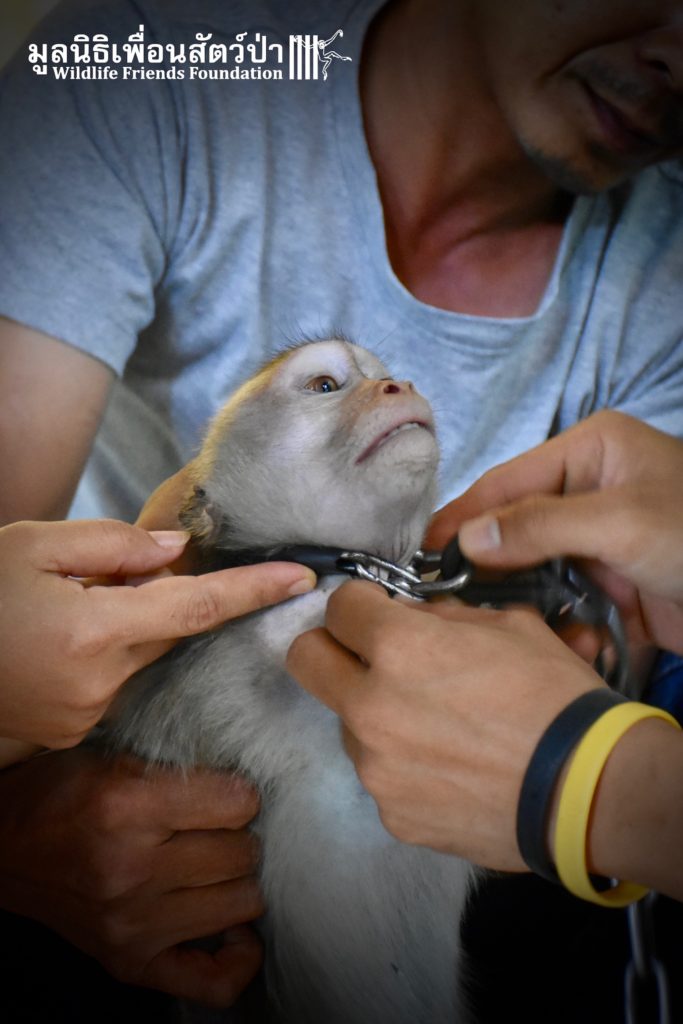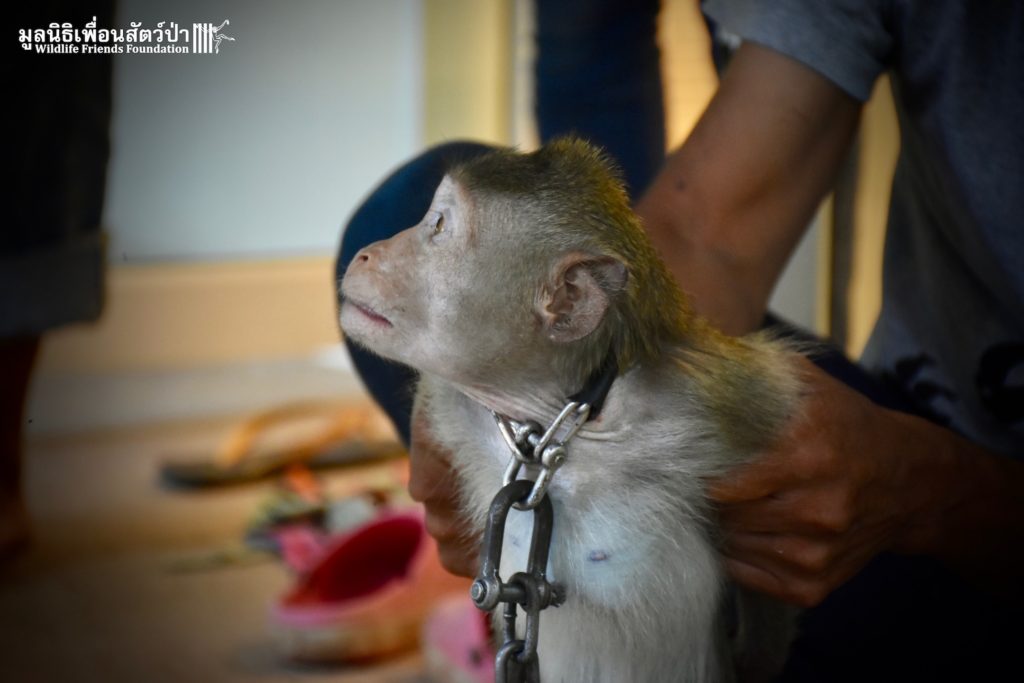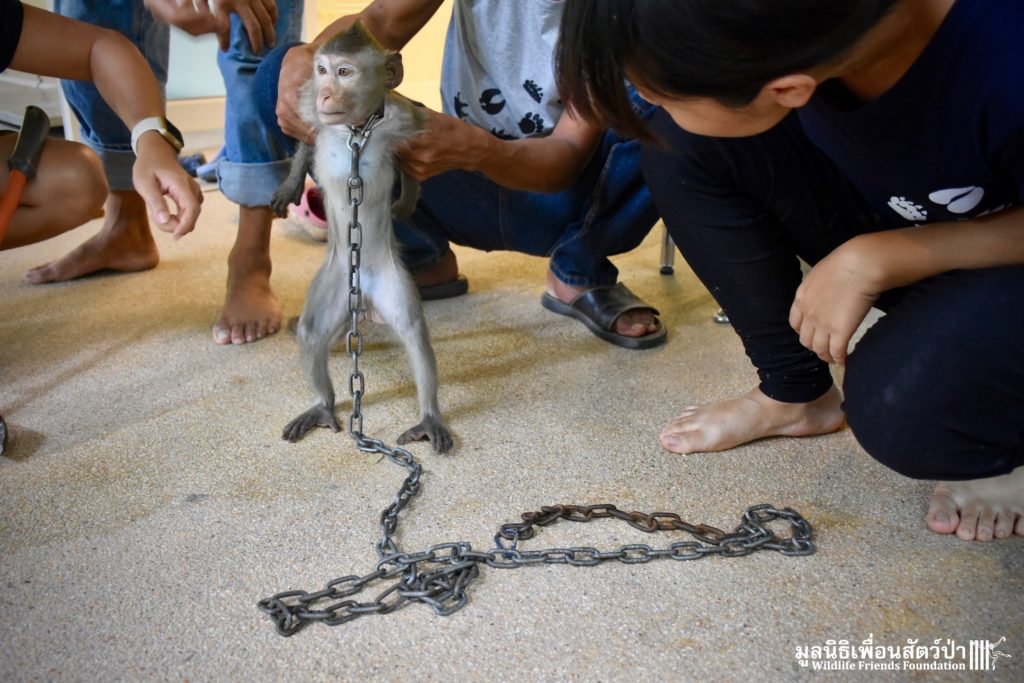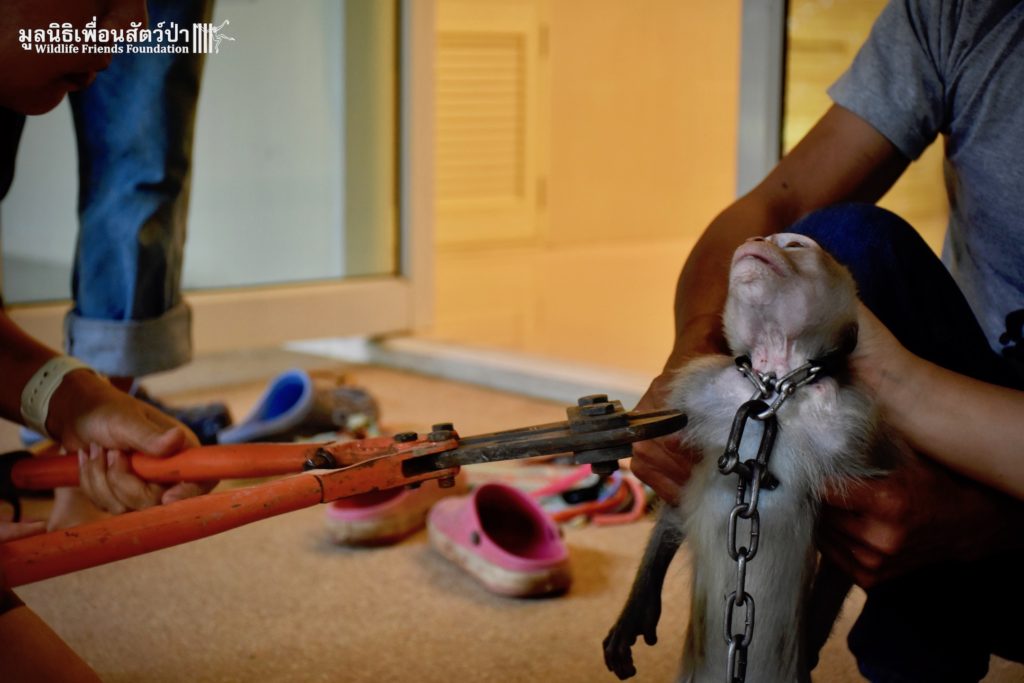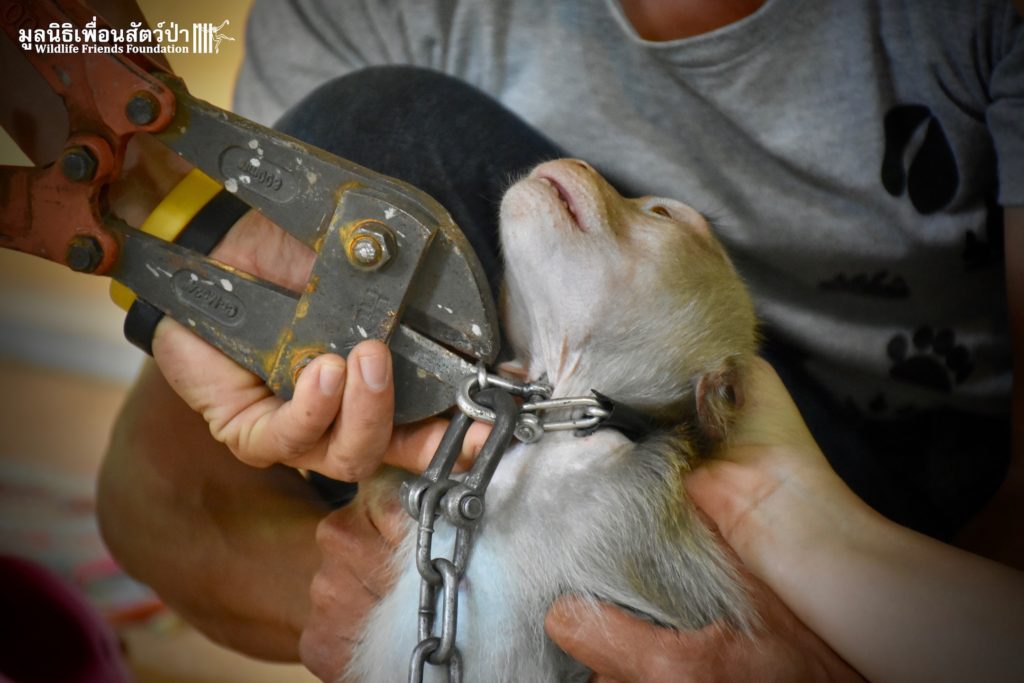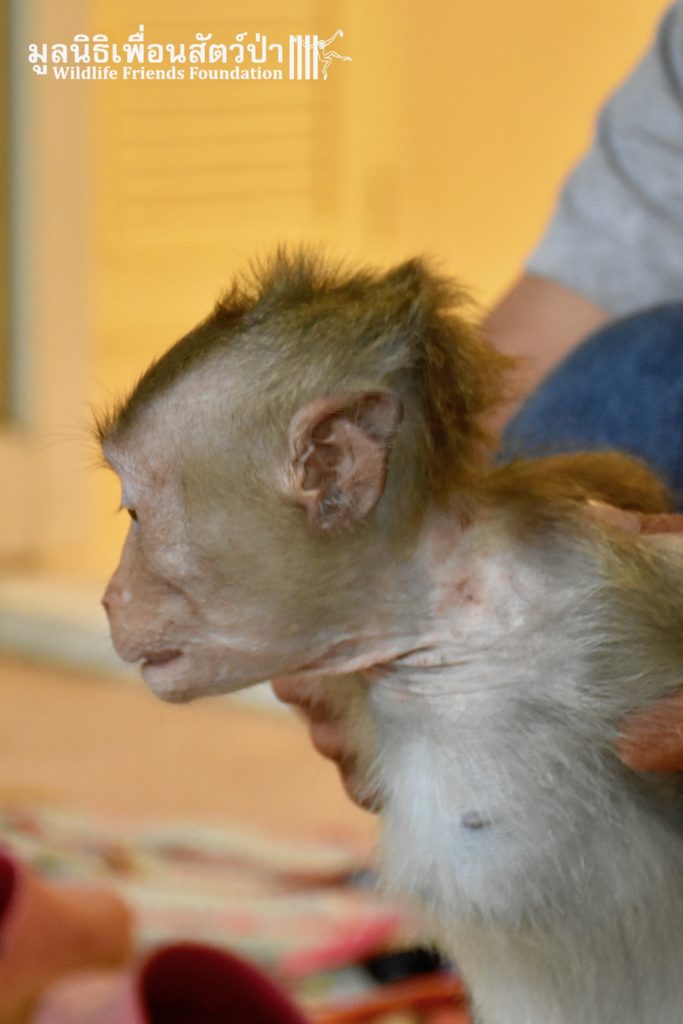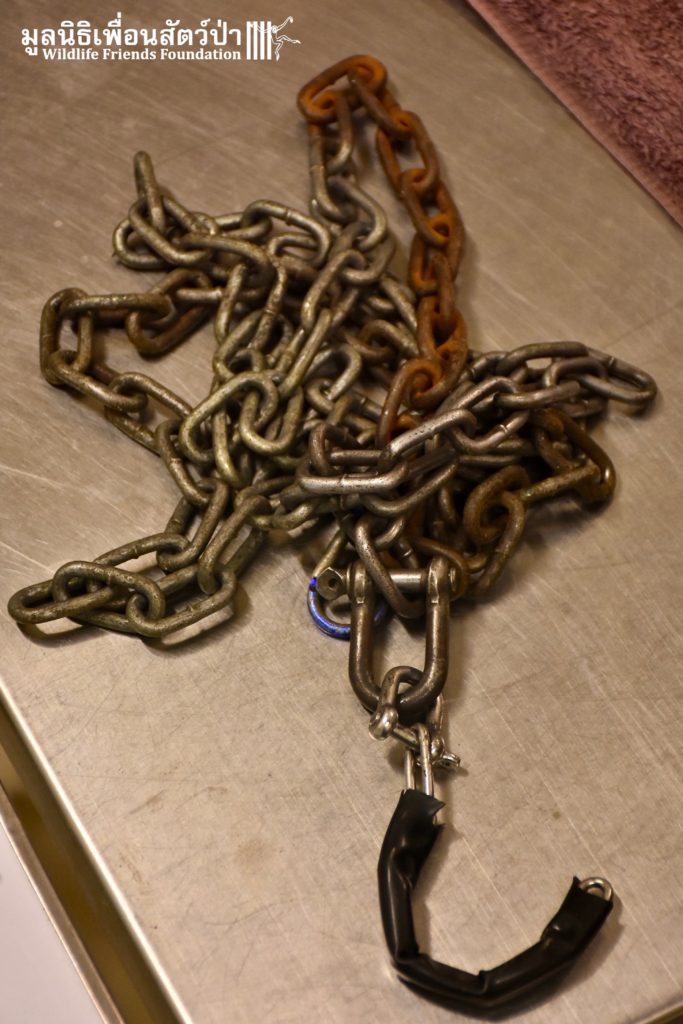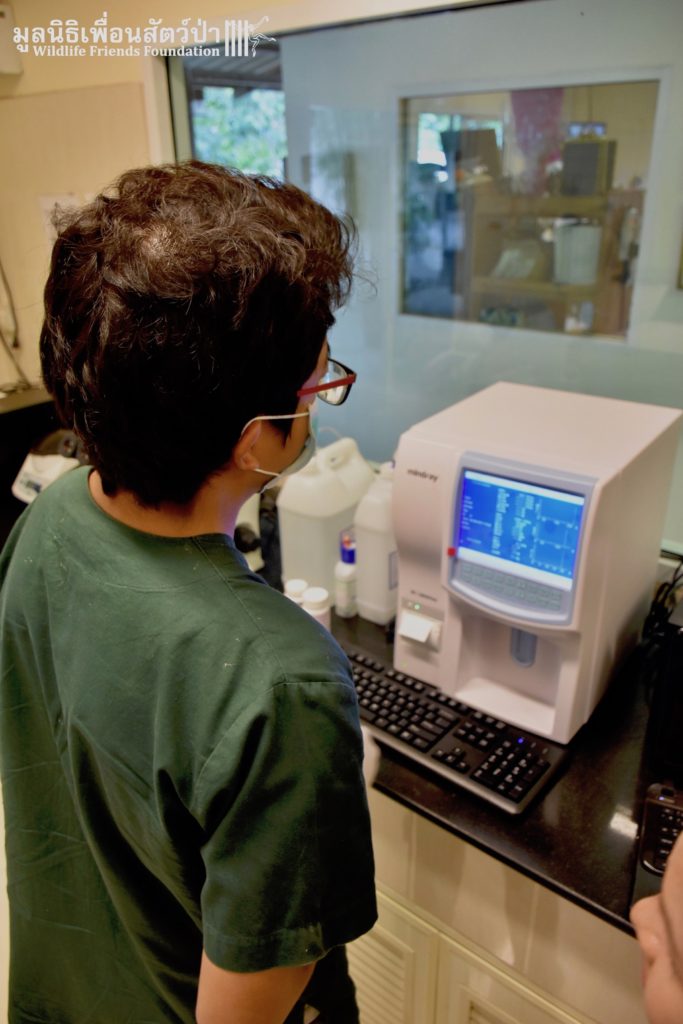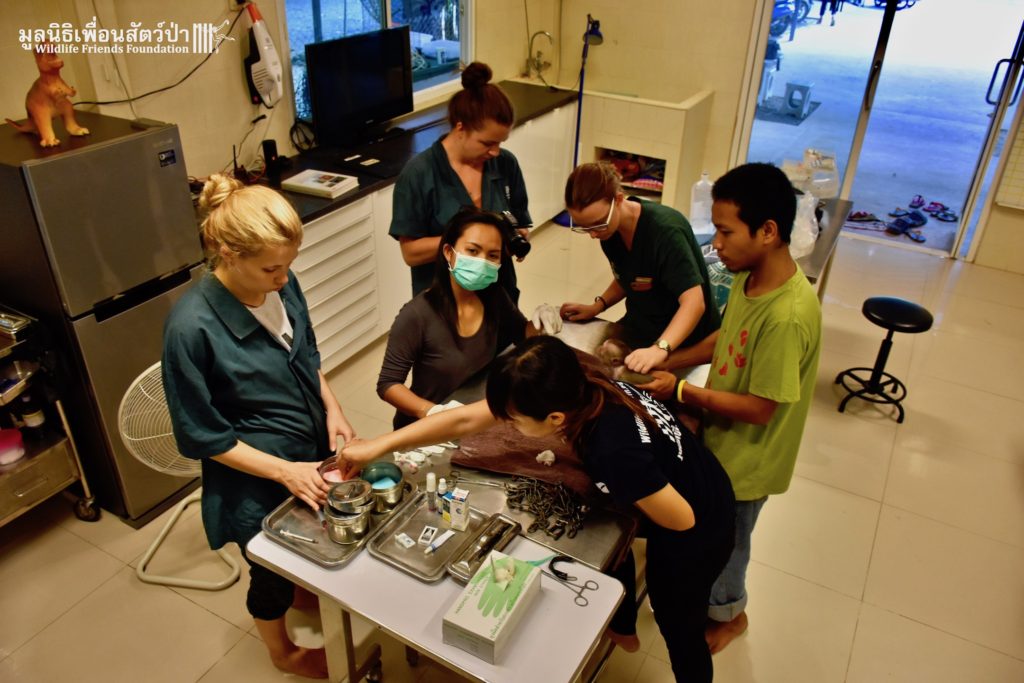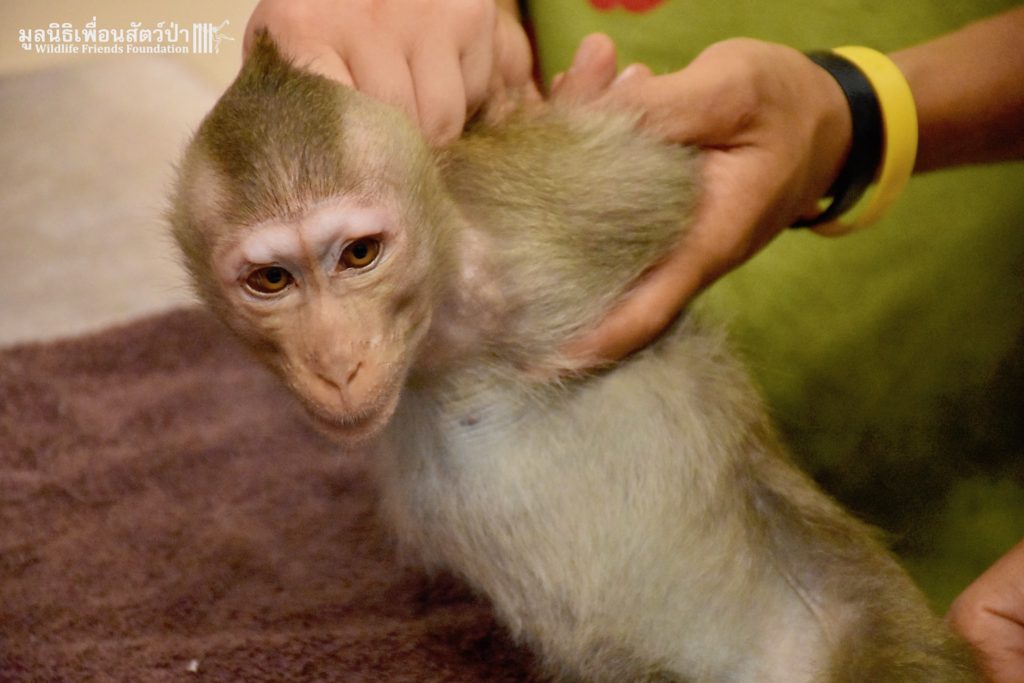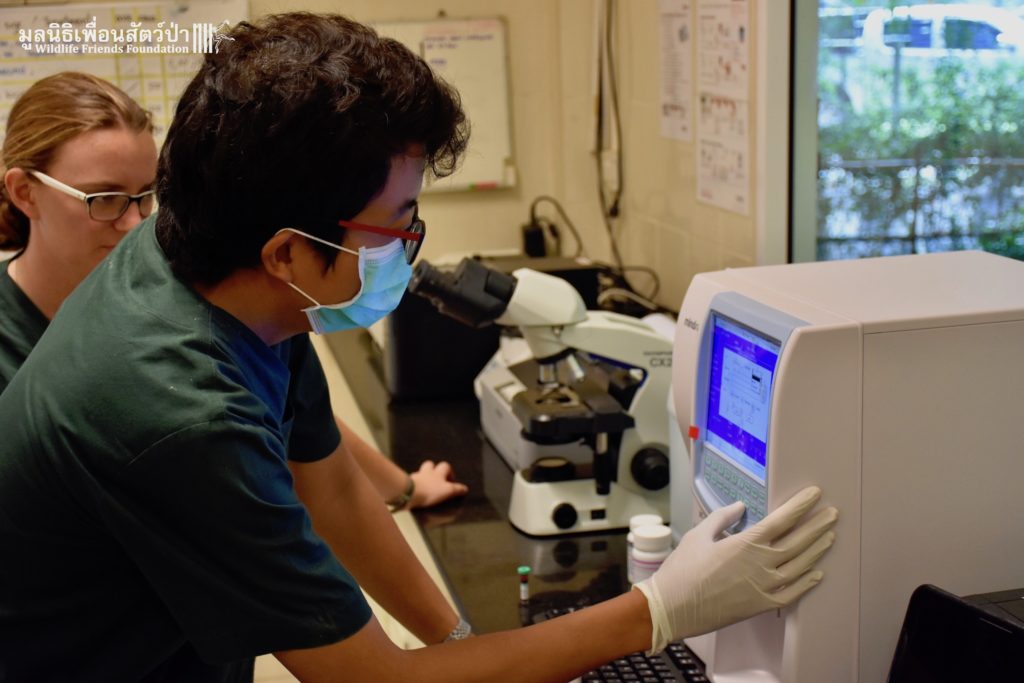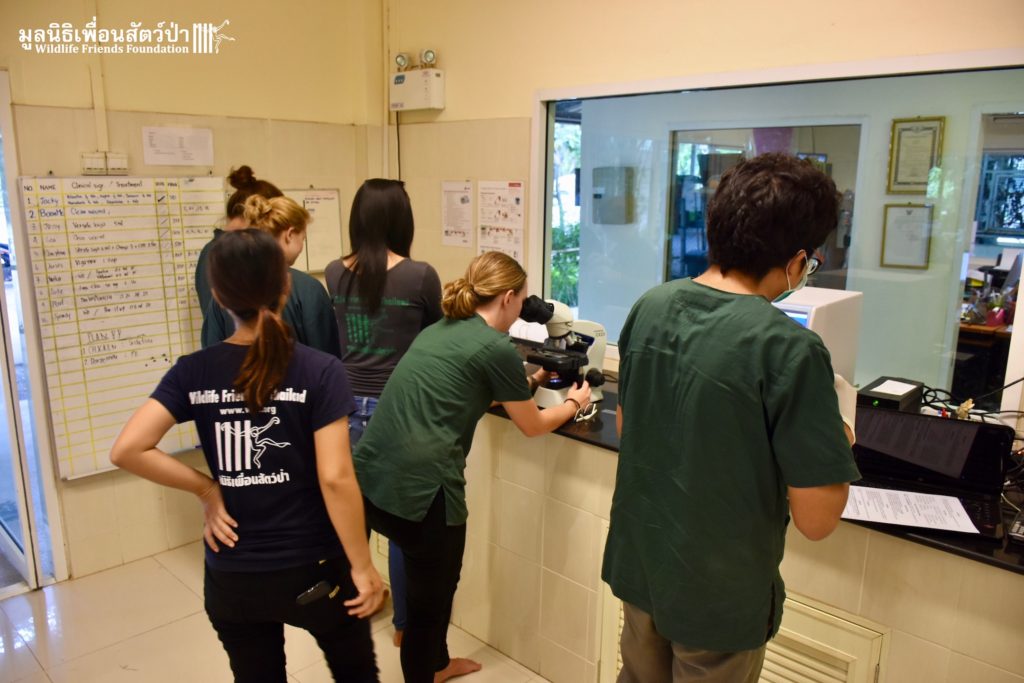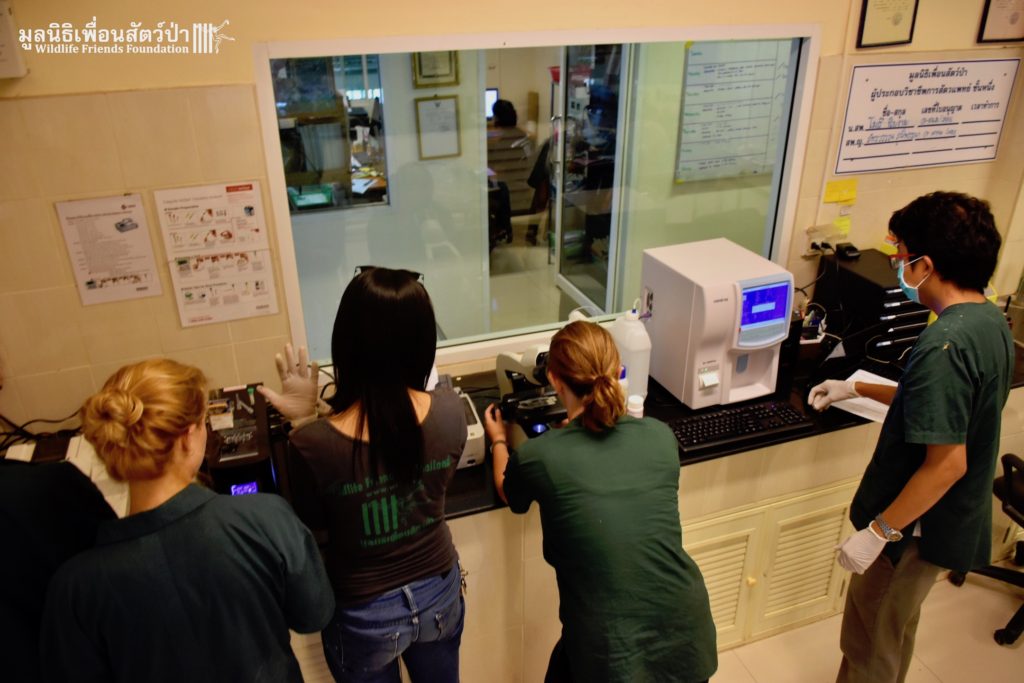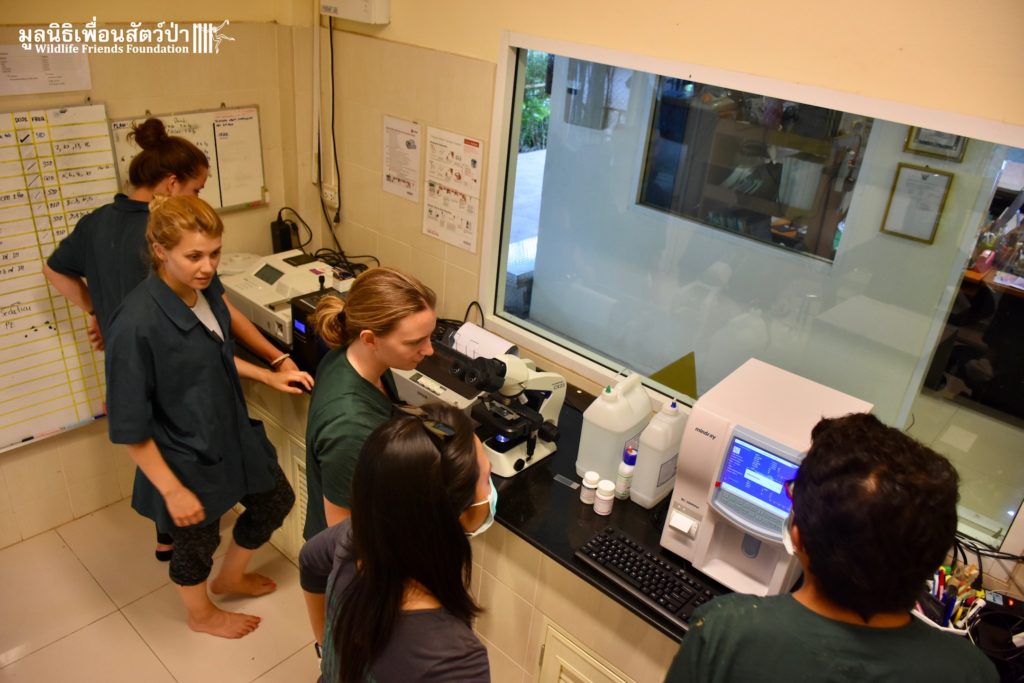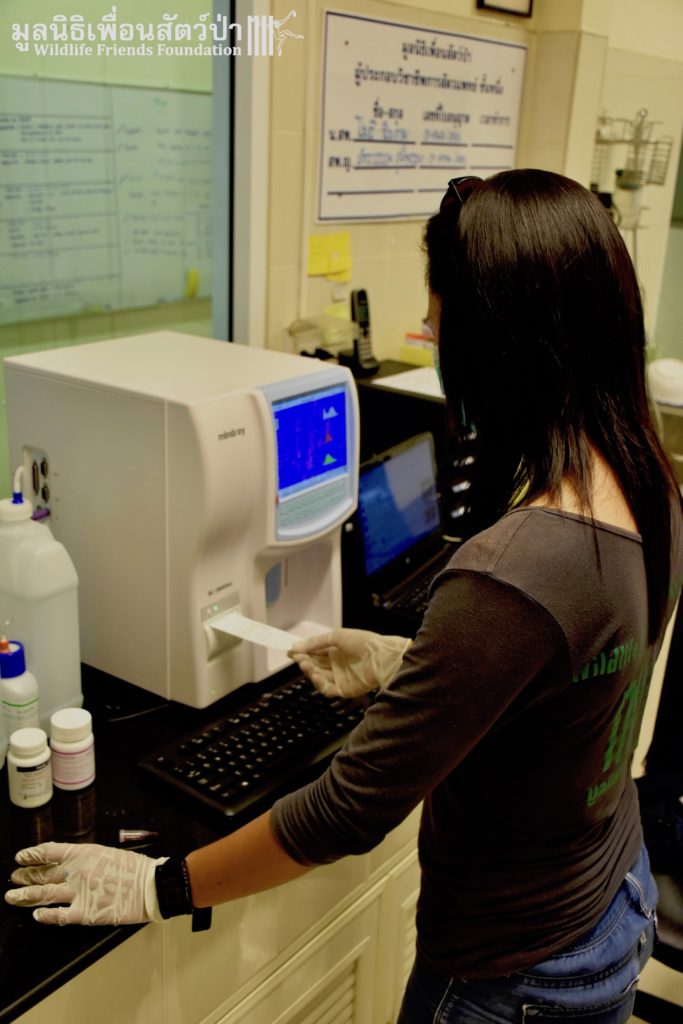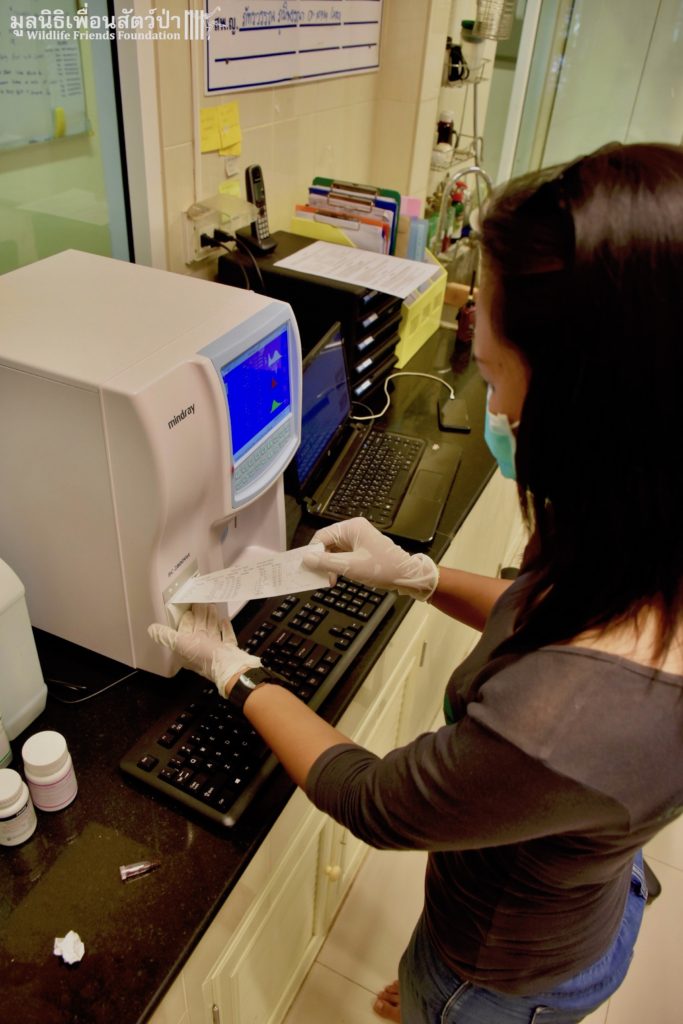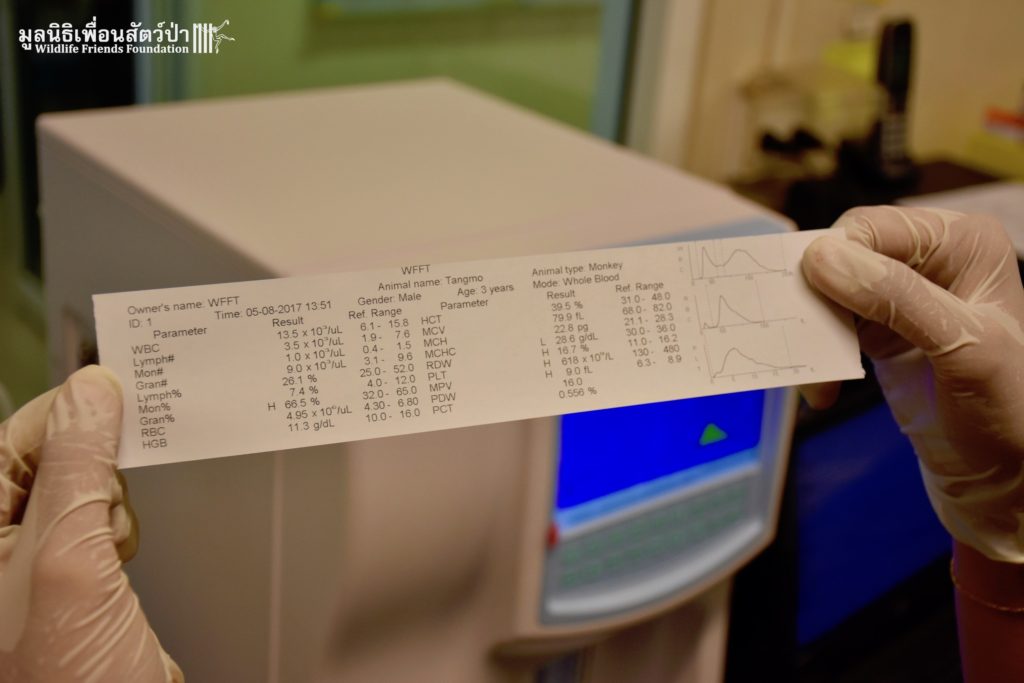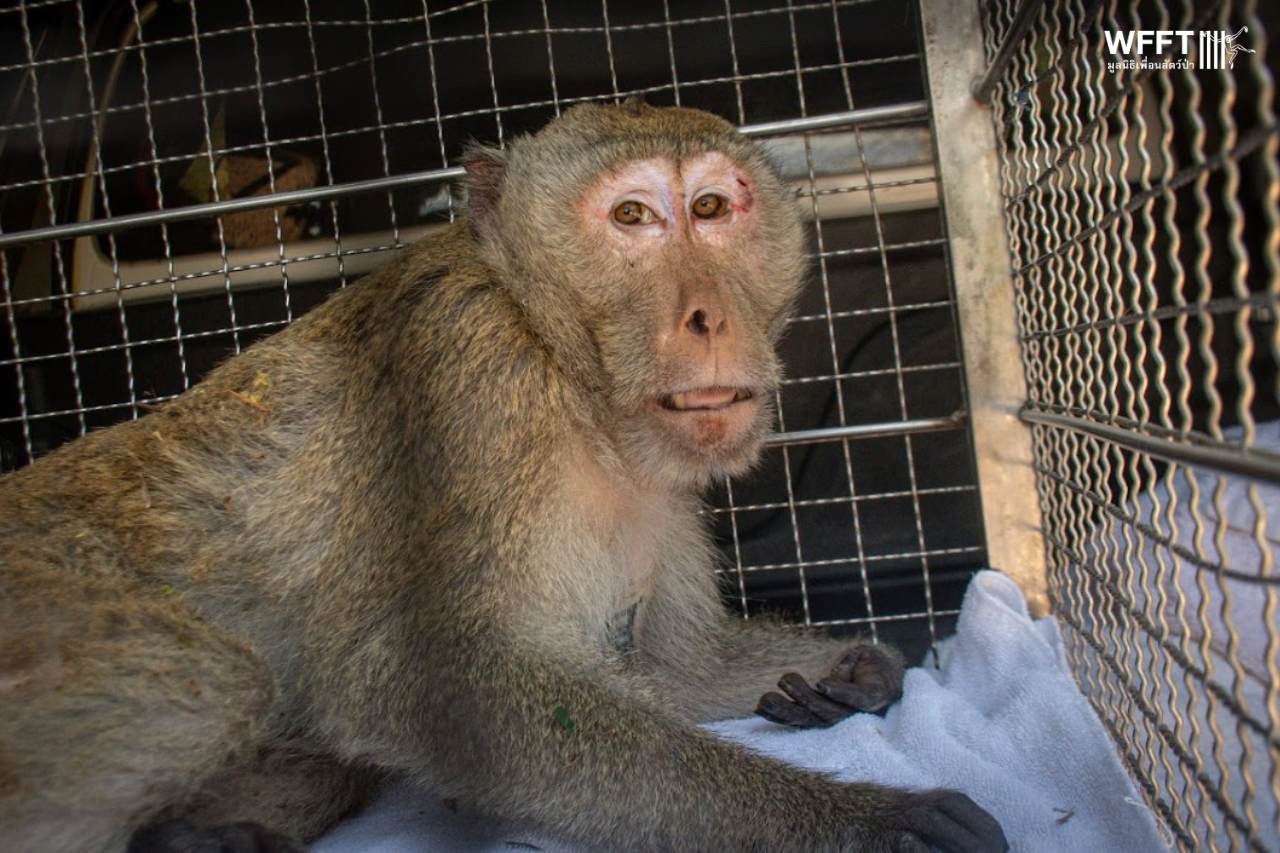It's time to take action—learn how you can help stop this exploitation and protect slow lorises from further harm.
Garage Macaque Released from Chains
A few days ago the WFFT Rescue Team headed out to help this little guy, meet Tang Mo (Watermelon) the five-year-old long-tailed macaque (macaca fascicularis). Tang Mo was being kept at a petrol station in central Bangkok, confined to a chain this poor guy had nowhere to hide away from the people, pollution or extreme temperatures. Purchased as a pet when he was a tiny baby five years ago, it is likely that he was caught directly from the wild, witnessing the murder of his family or at least his mother. Thankfully we were asked to help by a veterinarian who had found him, and managed to talk the owners into giving him a better life. He was brought straight back to the WFFT Wildlife Hospital.
Habitat loss and degradation due to the rapid change and increase in anthropogenic land-use, pose the biggest threat to all macaque species. The rapid urbanization of previous macaque habitat has forced these animals to coexist in hazardous human-dominated landscapes. Habituation and adaptation to humans has created truly urban macaque populations throughout many range states. Continual human-macaque conflicts arise within these areas; urban macaques are regularly persecuted as pests. The long-tailed macaque is listed as Least Concern (LC) by the IUCN Red list of Threatened Species, in view of its wide distribution, presumed large population, tolerance of a broad range of habitats, occurrence in a number of protected areas. Although the long-tailed macaque is the third-most common primate in the world with an extensive range across Southeast Asia, scientists recognize that their range and population status is declining due to habitat loss and degradation and exportation for the biomedical industry. It has been estimated that the global population is 40% lower than that estimated in the 1980s, and that the overall populations are decreasing rapidly.
Upon arrival the first task was the remove the chain which was very tight around his neck, if not removed, a few months further down the line it would have ended up embedded within his neck. After we removed the chain, a full health check was performed using the WFFT Medical laboratory, which has recently been upgraded with a new CBC (complete blood count) machine and microscope, this allows us to further analyze the health of every rescued animal. Luckily initial tests show now signs of illness. Little Tang Mo bares the mental scares from his years in solitary confinement but with time he should be able to overcome some of this, and once again join his own species in one of WFFT’s large open macaque fields. We will keep you posted on his progress.

